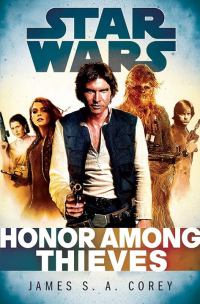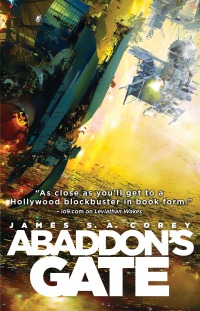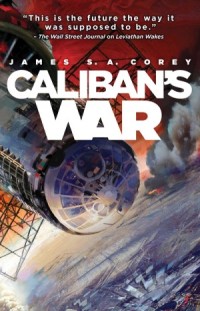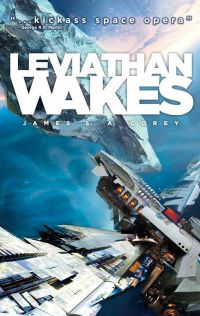Tiamat's Wrath by James S.A. Corey
 Friday, November 15, 2019 at 7:06AM
Friday, November 15, 2019 at 7:06AM 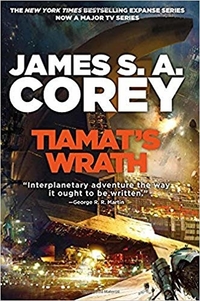
Published by Orbit on March 26, 2019
Planning a story arc that unfolds over nine books is an impressive feat. Executing the plan with the skill displayed by the writers who call themselves James S.A. Corey is even more impressive. The Expanse is one of the finest accomplishments in the history of space opera.
You need to read the last seven books in this series, in order, to have a full appreciation of the background to this novel, the eighth. That’s a lot of reading. For those who have completed the assignment (and those who have watched enough of the excellent television series based on the novels to get the drift), here’s where things stand. None of this will make sense, by the way, if you aren’t familiar with the series.
The gatebuilders apparently left a massive construct in a dead system that might be their backup drive. Maybe book nine will finally resolve the mysterious rise and fall of the gatebuilders.
The Laconians are looking for a way to protect themselves from whatever destroyed the gatebuilders, although there is no evidence that Laconian civilization is actually threatened. To that end, they plan to launch a weapon that they hope will destroy or at least “send a message” to their perceived but unknown enemy. Like all authoritarians, the Laconians are sure that fear, terror and belligerence will help them get their way. A few Laconians, as well as science fiction fans and pretty much anyone who can spark a thought, know that chucking a bomb through a gate at beings who have the ability to bend reality is just a bad idea. Sadly, authoritarians think with their mighty weapons, not with their tiny brains.
Meanwhile, James Holden is being held on Laconia, where he is not exactly imprisoned but not free to leave. Teresa Duarte, the daughter of the High Counsel of Laconia, views Holden with some suspicion, perhaps with good reason, although her dog knows that Holden is a good guy. But Teresa, being an entitled teen, is also rebellious. She develops a secret friendship with a dude who has hidden himself in a cave. The identity of the friend, and the friend’s fate, will be important to fans of the series.
The Rocinante is in storage and Alex Kamal is now piloting the Gathering Storm, a stolen Laconian warship. Bobbie Draper is leading a secret military mission using that ship against Laconia. Naomi Nagata is argumentative, as always. In the end, the plot will seek a reunification of the original crew of the Rocinante, or at least those who survive.
A theme that consistently emerges from this series is that war is stupid and that leaders and pundits who push for avoidable wars are stupid. In that regard, the Laconian leadership is monstrously stupid, as any number of characters recognize, including Elvi Okoye, a biologist who has been conducting research for the Laconians and who had a firsthand view of the results of the Laconian attempt to fight aliens they know nothing about.
Another theme that is central to the series is self-sacrifice. Characters die for the greater good. Series fans have likely come to appreciate and admire one or two characters who do not survive to the end of this novel. At least one of them dies a good death, displaying the kind of heroism that fans of The Expanse expect.
Like all the books in the series, Tiamat’s Wrath is a strong mix of action, politics, and philosophy. At times, the story is genuinely touching. Characters in the series never stop growing although they have largely settled into their personalities. In this installment, at least one of the key characters has changed in ways at which the story only hints.
I recommend the novel, but only for readers who are willing to commit to the entire series, starting with Leviathan Wakes. It is worth the investment of time for science fiction fans, but anyone who enjoys an intelligent outgrowth of pulp fiction will likely find the series to be rewarding.
RECOMMENDED
